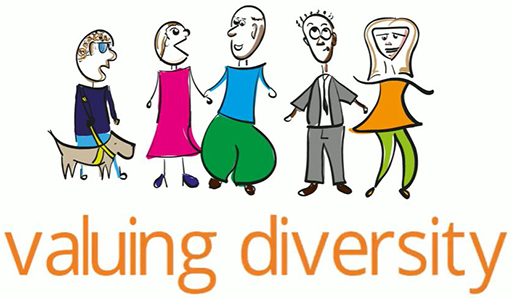1.1 Is this inclusive?
Inclusive leadership is an approach which is also associated with an ethical dimension, producing change not only at a local level but in wider society. It seeks to encourage people to recognise injustices, so that they can work together to change those injustices and/or the conditions from which they emerge. As such, inclusive leadership both aims to achieve greater inclusion as well as to be inclusive in its operation. This fits with much literature associated with the promotion of equity and inclusion. Ainscow (2020), for example says that strategies need to be informed by the impact of current practices on the involvement and achievement of all students, as part of a local and national promotion of equity and inclusion in all schools. However, Ainscow also notes the need for policies that are based on clear and widely understood definitions of what the terms equity and inclusion mean. As Sarid (2021) argues social justice policies take on different meanings and forms depending on the ethical worldview of leaders, allied to the specific needs of their educational context.
Activity 1 Is this inclusive?
Watch these three videos. All of them are about inclusive leadership, though not specifically in the context of education.

Transcript: Video 1 Inclusive leadership (Please note this video has no spoken audio.)
[TEXT ON SCREEN]
Inclusive leadership
Some say inclusive leadership is about…
valuing diversity
active listening
giving up power and empowering others
going the path together
we believe it is all of this and much more…
about truly being myself with my emotions, strengths and weaknesses
it is about being aware that we are all interconnected
taking decisions that value the resources in our world
it is about having the courage to break down barriers for people at risk of being excluded from society
the aim of inclusive leadership is to…
CREATE CHANGE INNOVATE
whilst balancing everybody’s need
inclusive leadership
want to unwrap your own inclusive leadership package?
check out our website www.alp-network.org
This video has been funded with support from the European Commission. It reflects the views only of the Author, and the Commission cannot be held responsible for any use which may be made of the information contained therein.
Co-funded by the Erasmus+ Programme of the European Union.
VisEUalisation - How to develop innovative digital educational videos
As you are watching make notes about:
- The understanding of inclusive leadership that is being presented.
- The values and priorities that are evident in the videos.
- Your own feelings about the value and nature of inclusive leadership.
Discussion
The three videos seem to have quite different views on inclusive leadership.
- The first video focuses on many of the concepts raised above. It has a focus upon diversity, listening and being able to express oneself. It suggests that it means different things to different people, but involves an ethical dimension, as well as having a commitment to being innovative and creating social change that offers opportunities for everyone.
- The second video also touches on ideas raised above. It has a focus upon diversity, but represents this as a set of categories. It raises the need to listen and be open to everyone but frames this in relation to various theories (the pyschological theory of ‘groupthink’; the economic theory of organisational performance; and the sociological theory of human capital). It also individualises the experience and frames voice as consultation.
- The third video does not focus upon the issues raised above. It focuses upon on the notion that you can identify what inclusive leadership involves, how it can be measured, compared and trained for. It seems to be suggesting that inclusive leadership is a leadership style that individuals have or do not have; it takes us back towards the hero model and away from the collective model. In this video the collective is at best a collection of individual leaders, cascading ideas down to people below them.
In looking across these three videos it is evident that people have different views of inclusive leadership which do not match up with the original intentions behind it. What seems evident is that the notion has been attached to other worldviews, and in the process been transformed into something it was not meant to be. These kinds of contradictory impulses are also evident in school leadership. For example, effective school leaders have traditionally been required to build vision, develop people, redesign the organization and manage programmes of teaching and learning. It would seem that these activies can all lend themselves to inclusive leadership. However, a study of 6 elementary school principals on the U.S.–Mexico border (DeMatthews et al, 2021), shows how different values produce a different school experience. In this study, some leaders who saw themselves as inclusive, priortised the development of teacher engagement with research-based practice. They focused upon student achievement through assessment and the use of resources, whilst aiming to increase teacher capacity and expectations for all students. However, this did not mean that they necessarily critically engaged with ideas around disabilty, race, socio-economic status and so forth. In constrast, other principals preferred to adopt a critical approach. They encouraged a rethinking of traditional approaches and working with the different cultures of their students and their low-income communities. Their priorities looked beyond the academic to supporting the children, family and community in holistic ways.
